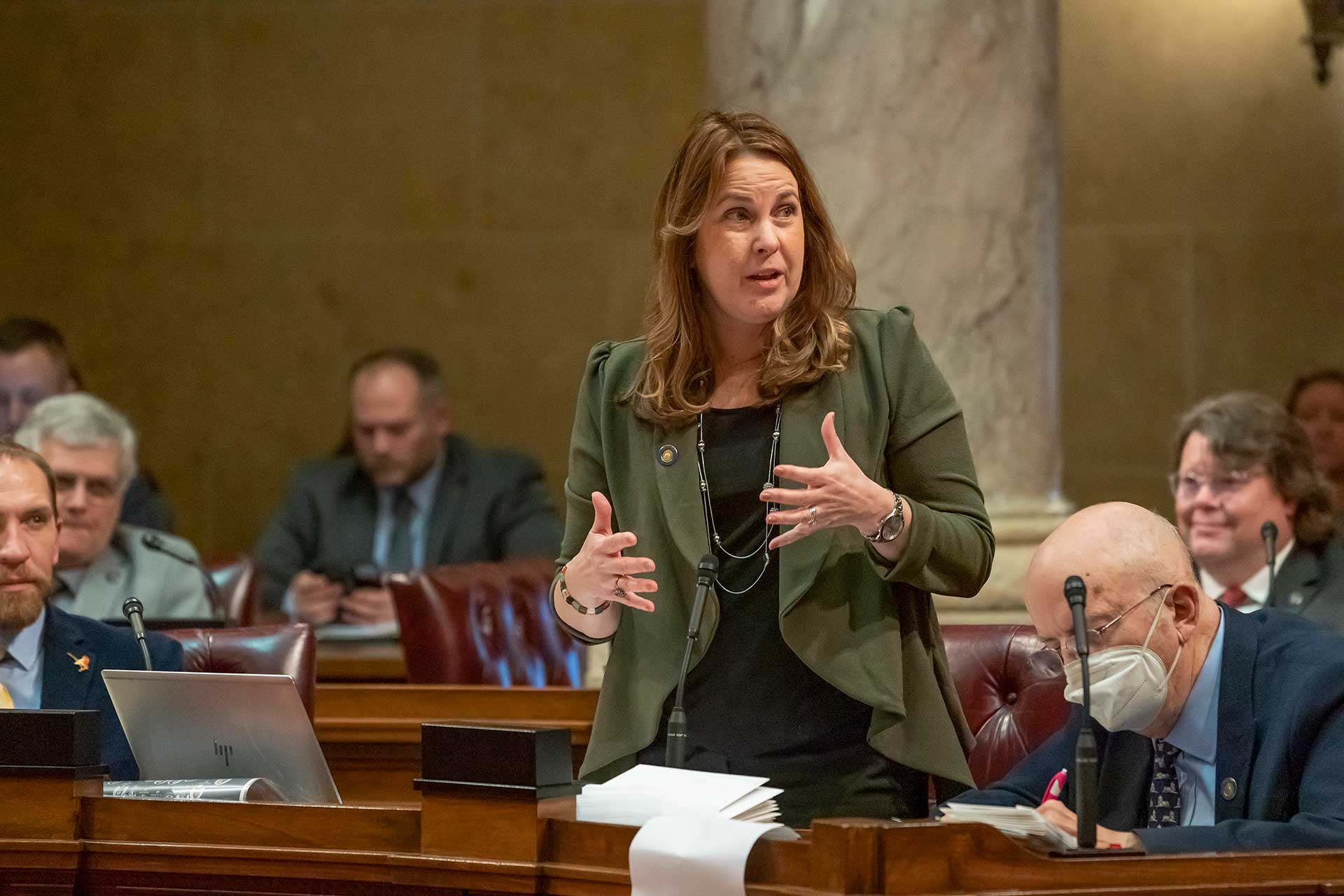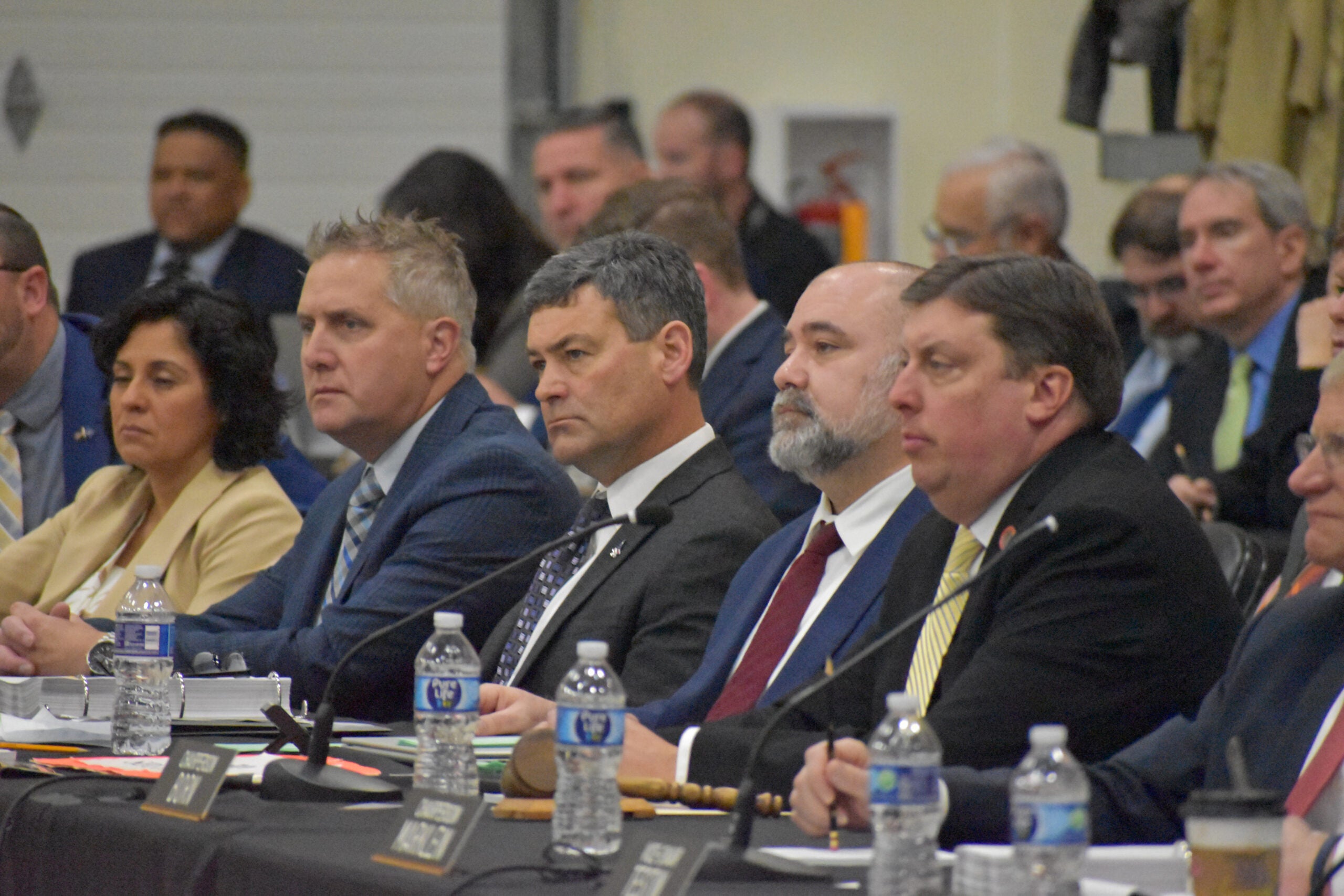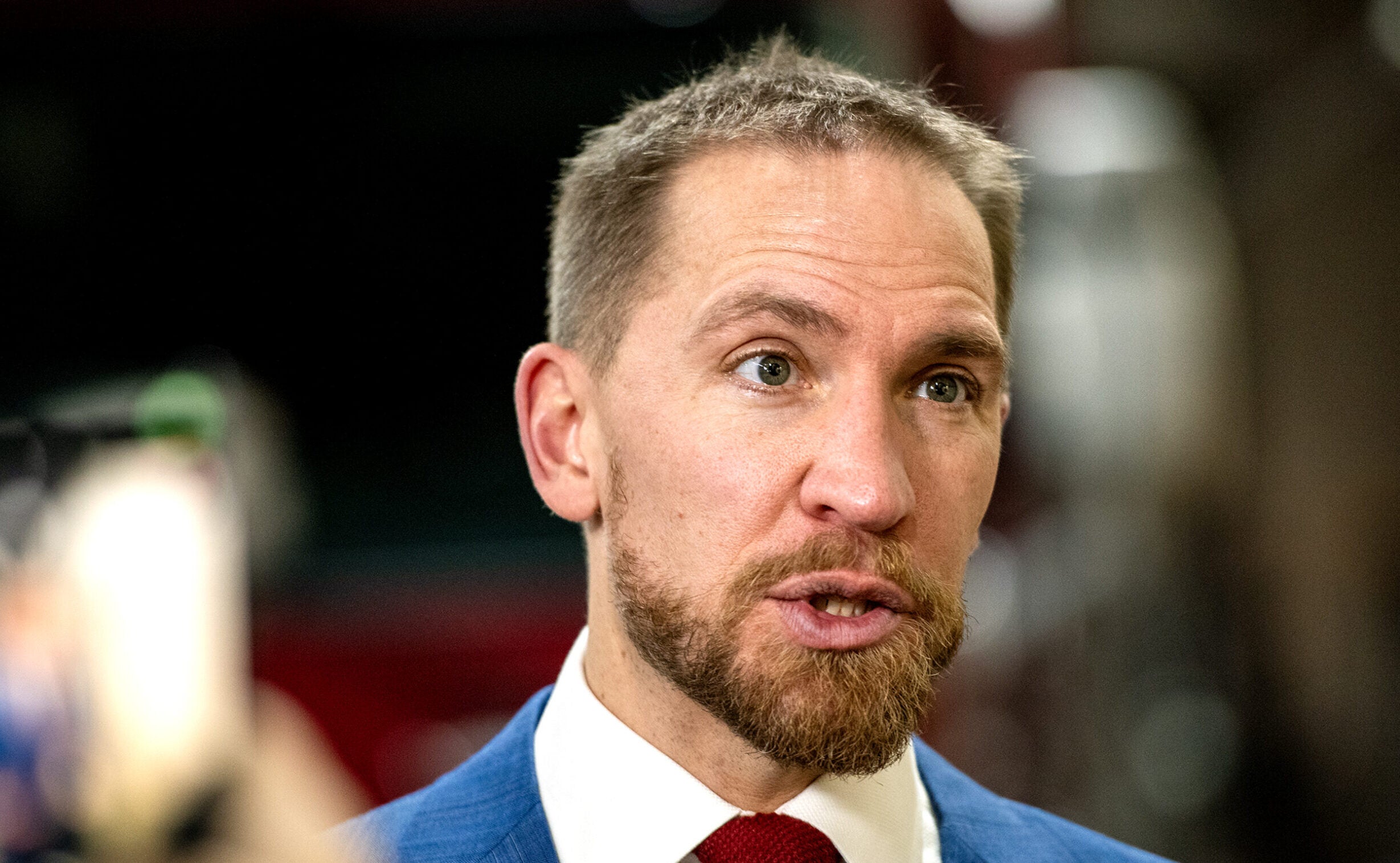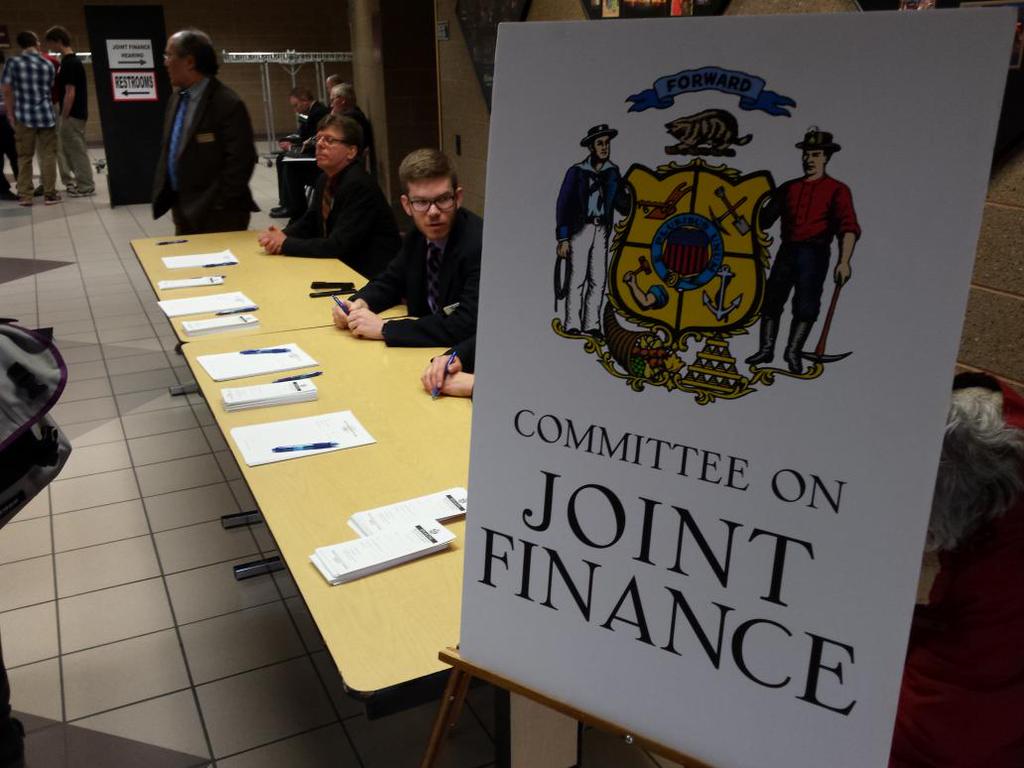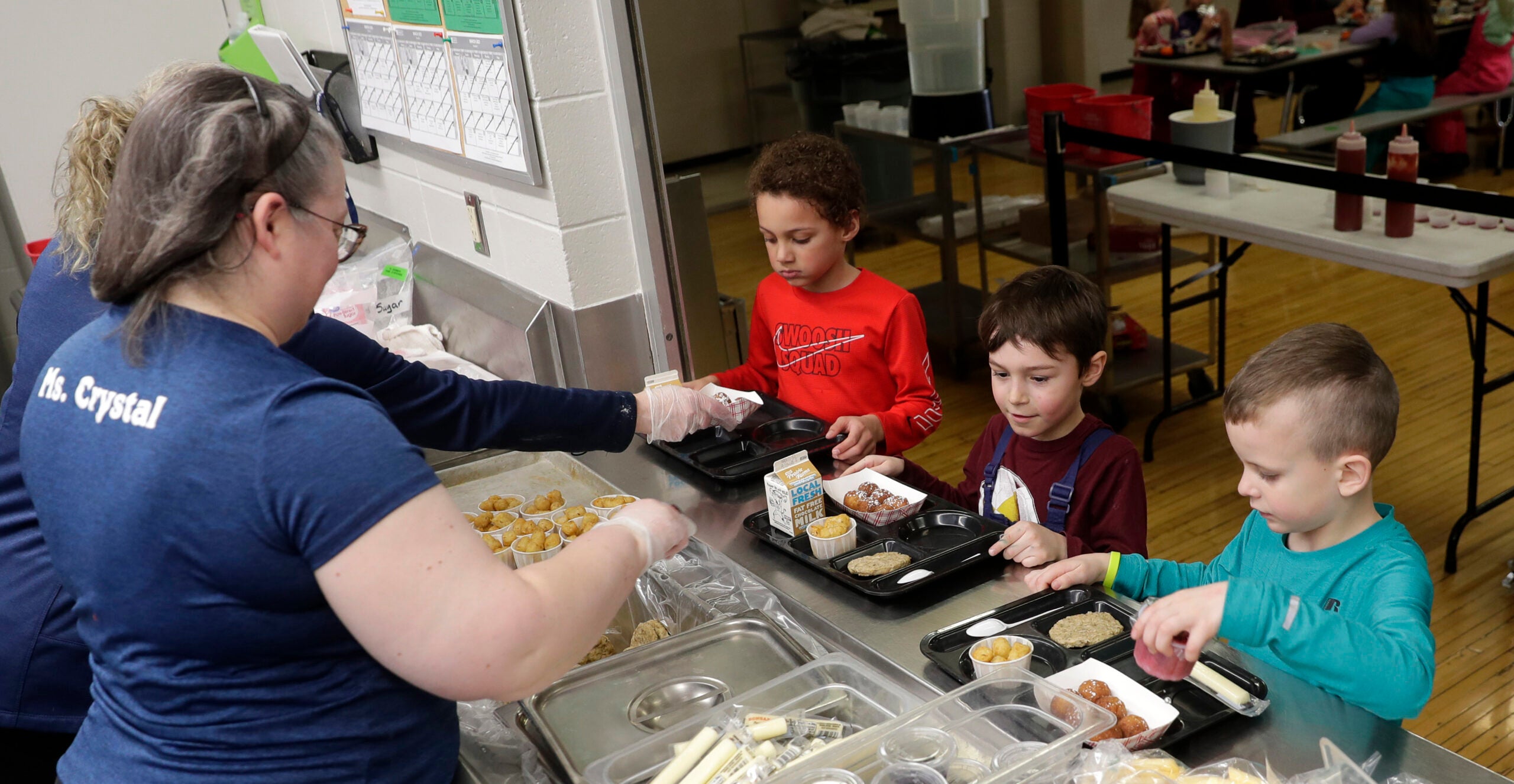Wisconsin ended its 2024 fiscal year with a larger-than-expected surplus of $4.6 billion. Wisconsin Senate minority leader Dianne Hesselbein says she’d like to use that money to invest in K-12 schools.
She also said she’d be open to providing a targeted middle-class tax cut.
“I would like to put a large portion of that money to the school districts so that they can decide what they need,” Hesselbein told WPR’s “Wisconsin Today” last week. “We also need to be funding special education. That is a huge issue that we are not funding right now in our state.”
Stay informed on the latest news
Sign up for WPR’s email newsletter.
Following news of the state budget surplus, State Superintendent Jill Underly announced her 2025-27 public education budget request would utilize the surplus money. The proposed budget includes reimbursing districts for up to 90 percent of special education costs by the 2027 financial year — up from 31.5 percent currently.
This year, there was a record number of school funding referendums on Wisconsin voter ballots. Hesselbein said those referendums are a product of the state failing to adequately fund schools across Wisconsin and forcing districts to place that responsibility on local taxpayers.
“People have been putting referendums (on the ballot) just to continue operating costs,” Hesselbein said. “We’re asking all these school district people to raise your taxes because the state won’t put the money in to do it.”
Hesselbein also said placing the responsibility of funding on school districts results in uneven opportunities for students across the state.
“Education is something that we are required by law of this constitution to provide, no matter where you live,” Hesselbein said. “The students in Verona should be getting the same type of opportunities as the students in Milwaukee and Rhinelander and Platteville and everywhere in between in our state.”
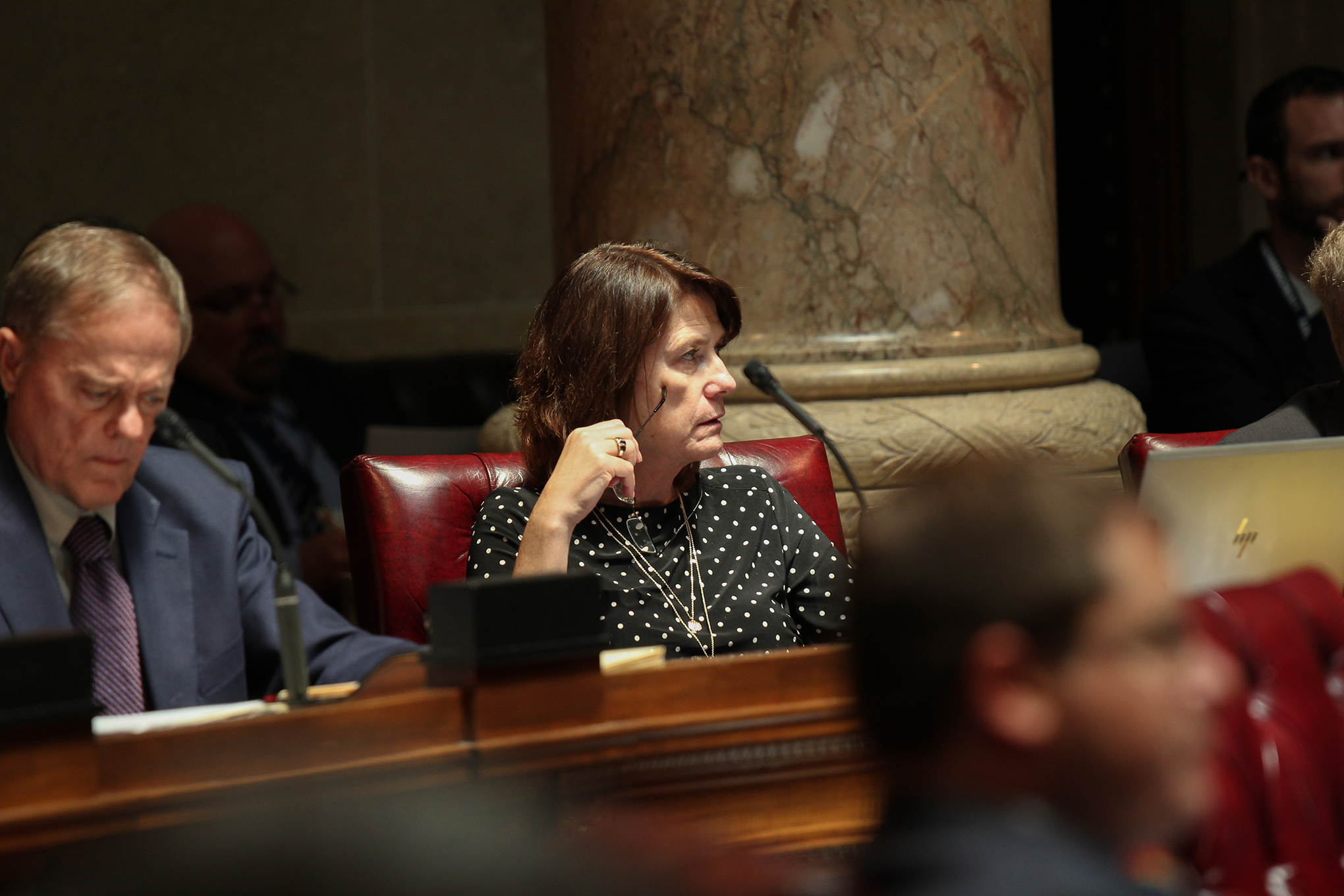
Wisconsin Senate President Mary Felzkowski said in an interview with “Wisconsin Today” that investing in schools is a priority for Senate Republicans, as well. She also said the state should return some of the 2024 budget surplus back to taxpayers in the form of tax cuts.
“If we’ve got that kind of a surplus, we’ve taken too much from our taxpayers,” Felzkowski said. “That’s when we sit down with the Assembly and with the East Wing, and say, “OK, we need to give some of this money back.’”
Hesselbein said that she thinks the budget surplus is large enough that the state could use it for both significant K-12 funding and targeted tax cuts.
“I think we would support a targeted middle class tax relief. There’s money to do both. So I’m open to having those conversations,” Hesselbein said.
Wisconsin Public Radio, © Copyright 2025, Board of Regents of the University of Wisconsin System and Wisconsin Educational Communications Board.
